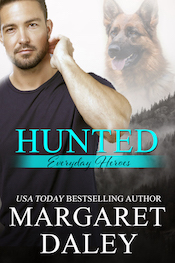
This week I’m hosting Louise Gouge with Love Thine Enemy, Sandra Glahn with Informed Consent and Raynene Burgess with Hopeful Chances. If you want to enter the drawing for the book, please leave a comment on one of the post during the week with your email address. I will not enter you without an email address (my way to contact you if you win). If you don’t want to leave an email address, another way you can enter is to email me at margaretdaley@gmail.com. The drawings end Sunday (July 19th) evening.
Sandra Glahn’s interview:
1.What made you start writing?
It’s really WHO made me start writing. Miss Fikan, my second-grade teacher, had me write one story a day, and she raved about whatever I wrote. By the time I was old enough to realize nobody’s that good, it was too late. I was hooked.
2.How long have you been writing? When did you sell your first book?
Growing up I had no aspirations to be a professional writer. I wanted only to be Diana Ross.
After I graduated from college, I worked for a 700-employee company where my boss thought I had some writing talent. So I got my start twenty years ago working as the editor of employee publications for a financial services corporation.
Eventually I started a free-lance writing business, and one of my clients was the music producer for Barney and Friends. Another of my clients was Dallas Theological Seminary (DTS)—where I now teach writers. I edited (and still edit) their magazine, Kindred Spirit.
My husband and I were experiencing infertility, and at that time we found nothing on the market that helped us think biblically on the subject. So I sold my first book proposal in 1995—a non-fiction work about a Christ-centered approach to the heartbreak of infertility and pregnancy loss.
Eventually, though, I found I had more influence on people’s thinking by addressing bioethical subjects through the medium of story. So I’ve authored or coauthored four medical suspense novels. I continue to write non-fiction—the most successful of which is the Coffee Cup Bible Study series. But nothing thrills me like writing a heart-stopping story.
3.How do you handle rejections?
For the first hour, I’m like anybody else—bummed. The second hour I remember I’m a magazine editor who writes rejection letters all the time, and most of those rejections are because someone’s idea doesn’t fit our publication plan. So by the third hour, I’m usually trying to figure out which publisher’s plan it might fit.
4.Why do you write?
I write because I have to. Like Eric Liddell, I “feel His pleasure.” I’d curl up into the fetal position if I couldn’t write. I write because I have something burning within me that I have to say. Opinions R Me. My tag line is “thinking that transforms,” and I love challenging people’s thinking about anything from bioethics to reconciliation to helping the poor. I’m the fourth of five kids, so maybe I ended up writing because I could never complete a thought without getting interrupted. The reader is, in a sense, forced to listen to my entire argument before passing judgment.
5.What would you be doing with your free time if you weren’t writing?
Reading. Right now I’m studying for my PhD examinations, and in the past month I’ve had to read Middlemarch, Crime and Punishment, The Great Gatsby, The Grapes of Wrath and Main Street. For starters. I think I might just remain a student for the rest of my life. I get to burrow in my room and read great books, breathtaking books, for homework. Why would I want to graduate?
6.What are you working on right now?
I’m starting my dissertation. Because my PhD program is in Aesthetic Studies, I can do a creative dissertation, so I’m considering a historical-fiction novel set in first-century Ephesus. I’m headed to Asia Minor this summer for some on-site exploration of the sights and smells, hoping a plot will come to me while I’m there. I’m very interested in exploring how Artemis-worship affected the first-century church, particularly its contribution to a high number of widows. I’ve already devoted a semester to that question, and I think I could have some fun with that in story form.
7.Do you put yourself into your books/characters?
If I wrote a character that was 100 percent me, I’d bore myself. I already know me. I want to create someone new—ex nihilo. But my characters and plots are made of a little bit of me people I’ve known or met.
8.Tell us about the book you have out right now.
The novel I have out right now is Informed Consent. The protagonist, Dr. Jeremy Cramer, is a young doc on the verge of a cutting-edge medical discovery. But his research gets derailed when his son is infected with a rare fatal disease. Here’s the dilemma: He has the means to heal his son, but he can’t do so without crossing ethical boundaries.
9.Do you have any advice for other writers?
Yes. I do. Back before I’d ever published anything, I used to look at all the books on the market and think, “Do we really need another book?” or “What do I have to say that has not already been said—and better?”
This concern is nothing new. Augustine addressed it in his work, On the Trinity:
“Not everything … that is written by anybody comes into the hands of everybody, and it is possible that some who are in fact capable of understanding even what I write may not come across those more intelligible writings, while they do at least happen upon these of mine. That is why it is useful to have several books by several authors, even on the same subjects, differing in style though not in faith, so that the matter itself may reach as many as possible, some in this way others in that.”
So my advice: If you are at all inclined to write, do it. Don’t let that voice telling you someone else has already done it or “done it better” stop you from writing. Perhaps that better-written book will never make it into one of your readers’ hands and you will get to be the fortunate soul through whom someone’s thinking is forever changed.
10.How important is faith in your books?
Extremely. But not necessarily overt three-point-outline salvation-story faith. You’ll probably never find the Four Spiritual Laws spelled out in a Sandra Glahn novel. Jesus told stories in which some caught his spiritual meaning and others missed it. And rather than becoming more overt so they’d all get it, He said the one who has ears to hear would hear.
I don’t start out by asking what faith theme I want to communicate. I start with a likeable character, give him or her a longing, and then start throwing up obstacles. Because of my world view, I can’t help but explore faith issues. By the time I’d finished Informed Consent, I’d explored organ donation, cross-gender friendships, marital intimacy, fidelity, alcoholism, sloth, Hinduism, Trinitarianism… I didn’t set out to teach on these subjects. I just had my characters “do life,” and my world view showed up. I think that’s what all good fiction does. All of it has a moral premise. The Grapes of Wrath is not considered a “faith” book, but it is probably the best treatise I’ve ever read on the utter necessity of community for survival. That’s what the good stuff does—it explores the stuff against which there is no law.
11.What themes do you like to write about?
I like to, as they say, afflict the comfortable and comfort the afflicted, especially where medical issues are concerned. That means human rights, poverty, gluttony, beginning of life issues, end of life issues—anything that happens in a hospital.
12. What is your favorite book you’ve written and why?
Isn’t that like asking a mother to name her favorite child? Each book has its strengths and weaknesses. I love Lethal Harvest because it was my firstborn. My favorite characters live in that book and its sequel. But I like the subject matter of False Positive best—making Christians consider the vitriolic pitch of the pro-life/anti-abortion debate and nudging them to work on their listening skills. My favorite word- crafting and brain challenging happened in Informed Consent. So I like the style in that one the best. And I like the humor in all of them.
13. What is your writing schedule like?
I start the day by making dinner. Throwing something in the crockpot after I get up prevents me from having to stop in the late afternoon when the muse is going full-steam.
Depending on my schedule for the semester, I teach for three hours, go to class, do homework, or work on my WIP. On days I teach, I try to set up meetings at the school so I don’t have to return on days when I don’t have to teach. I try to work my schedule to create as many big blocks of time to write as possible. I can’t write if I have only 20 minutes. It takes me that long just to “ramp up.”
Here’s an essential: On Sunday I worship and rest and read (nothing required). I think stillness is essential to creativity. Time off is to the week what holes are to lace. It’s the part that makes the rest beautiful.



